Metal ceramic crowns in Albania are a type of highly biocompatible crowns which are made of alloys covered by a special ceramic material such as porcelain. They provide excellent strength, durability and resistance.
Dr. Roland Zhuka is a well-known implantologist, specialized in advanced implantology in Rome, Italy. The doctor has also successfully completed other specializations in the US, Lisbon, and Berlin. All treatments can be done under Conscious sedation or total anesthesia since our dental clinic is located inside the best Private Hospital in the Balkans.
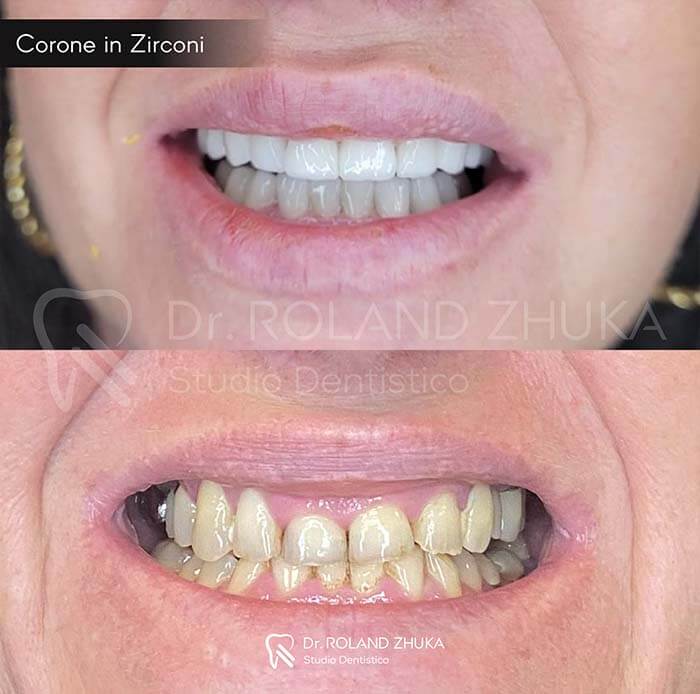
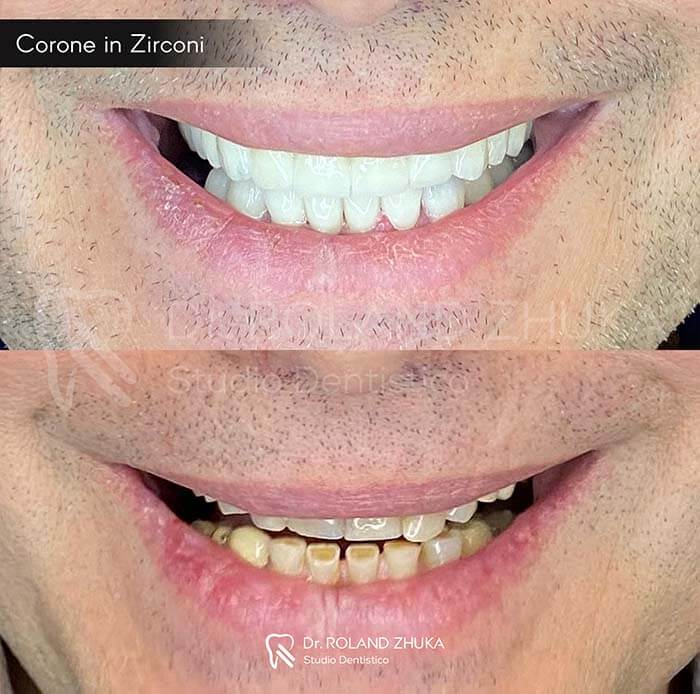
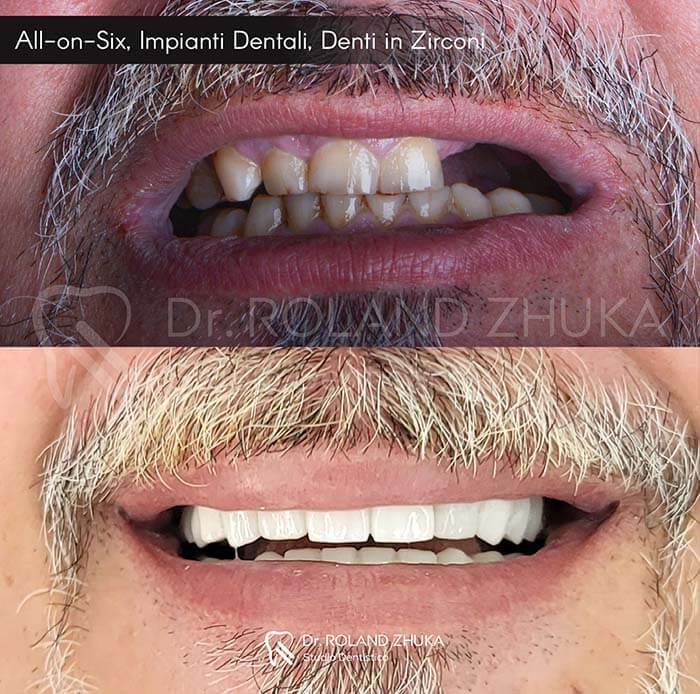
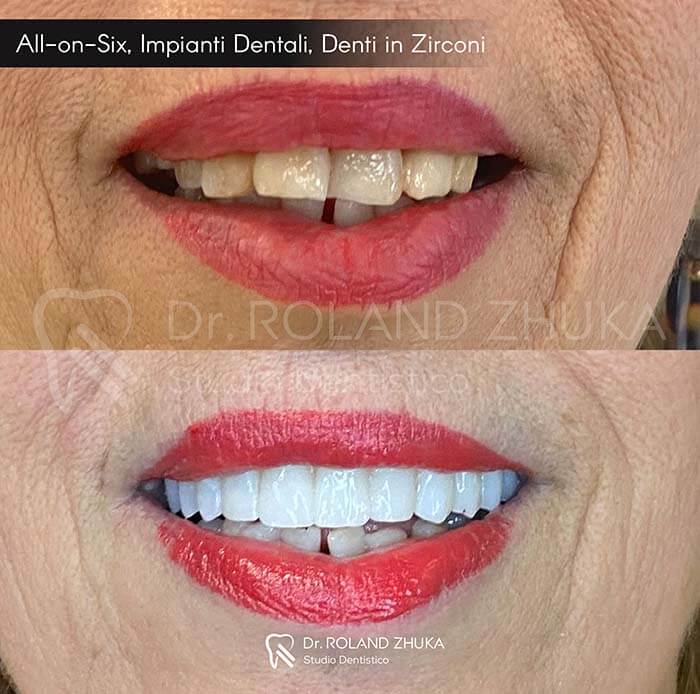
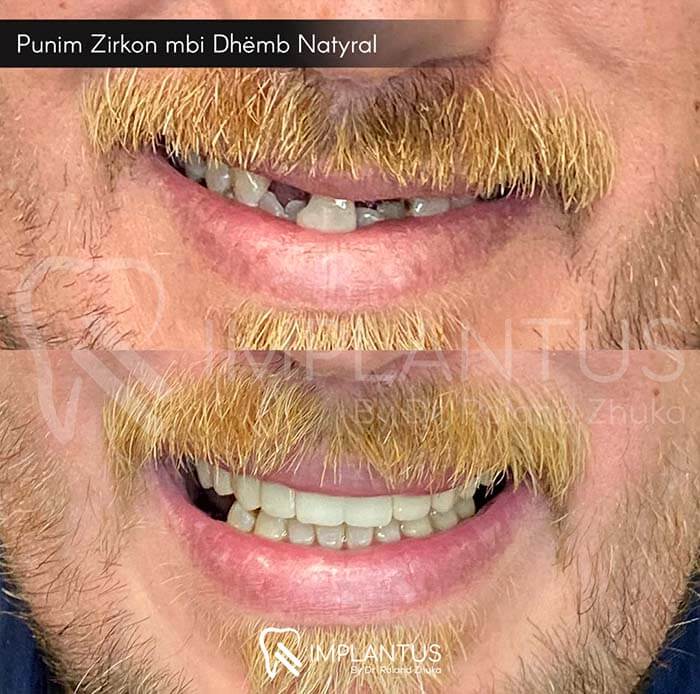
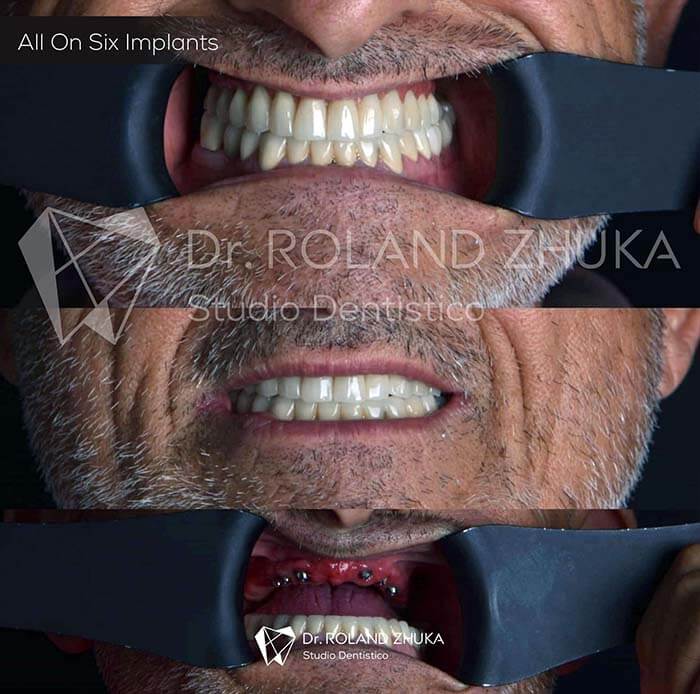
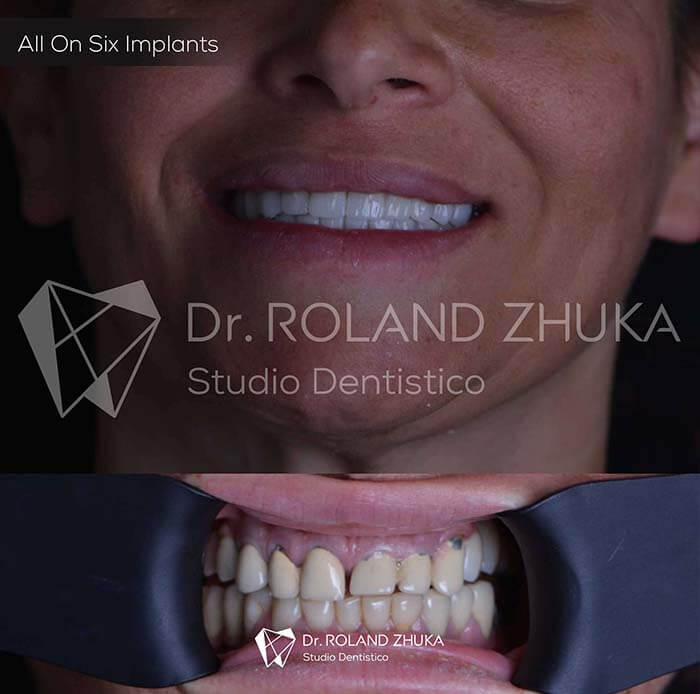
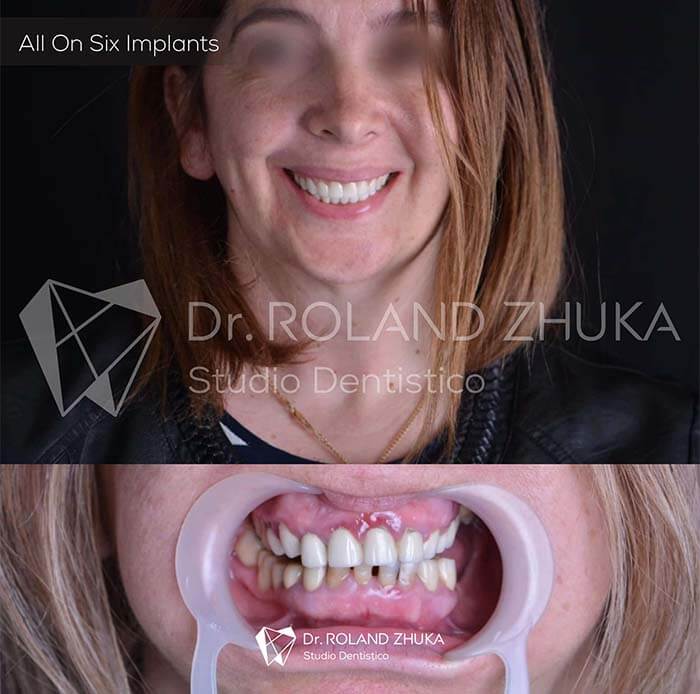
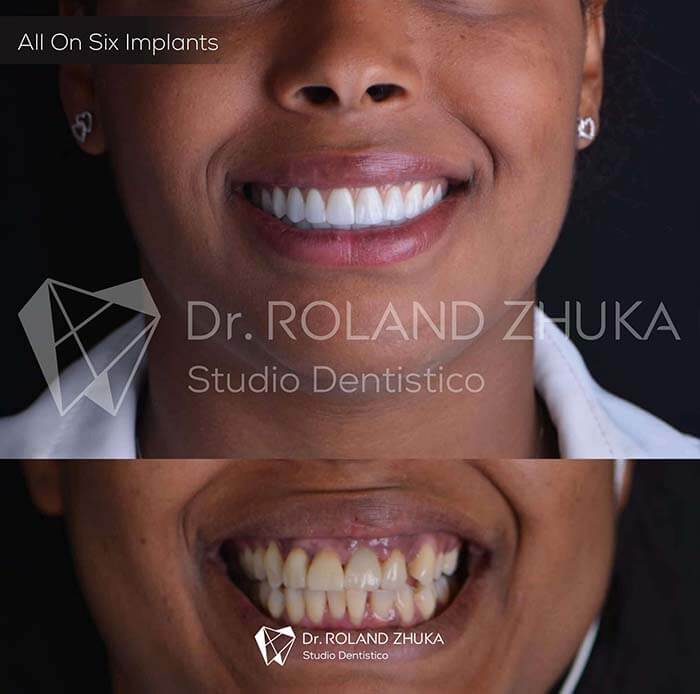
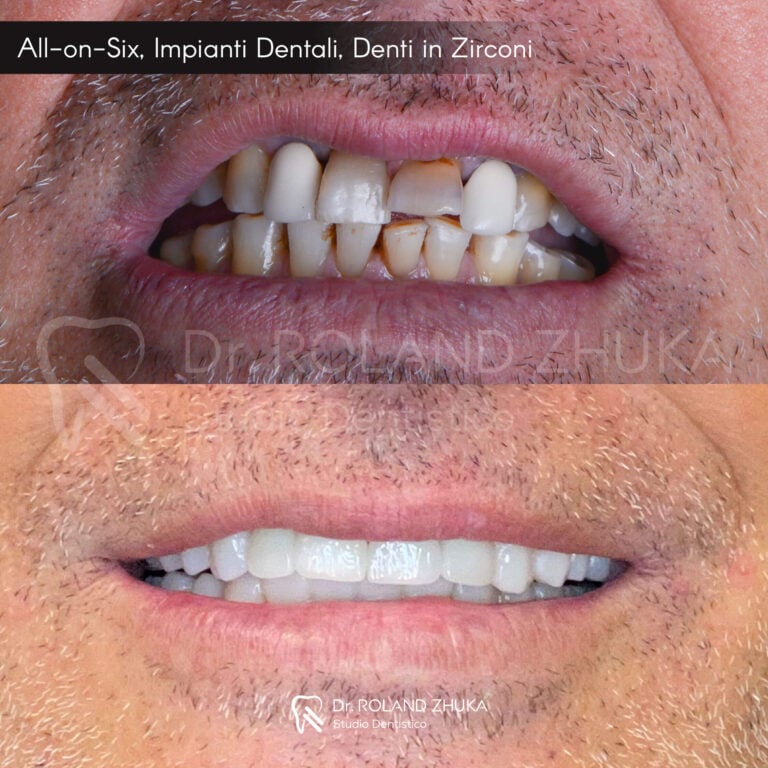
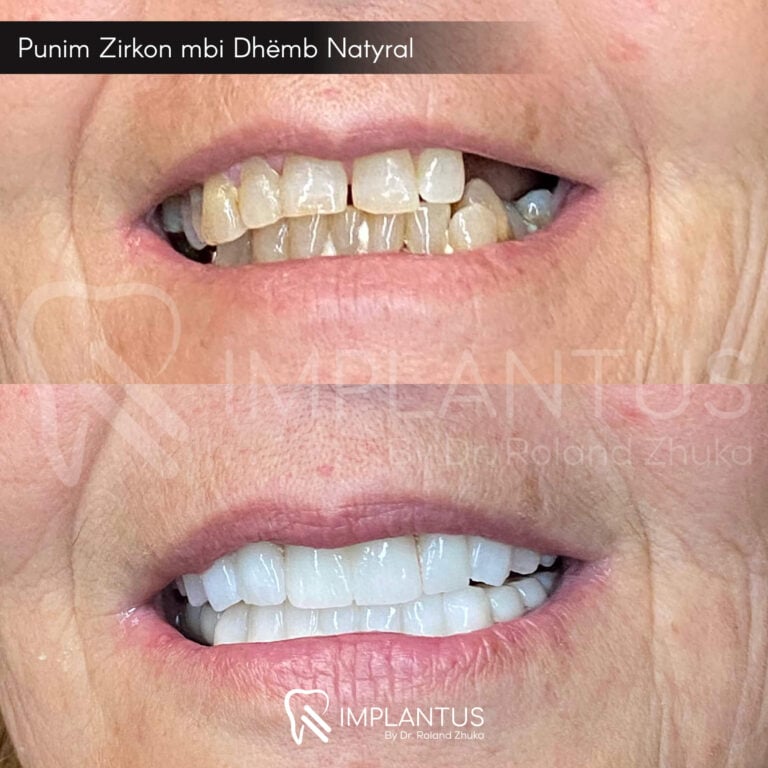
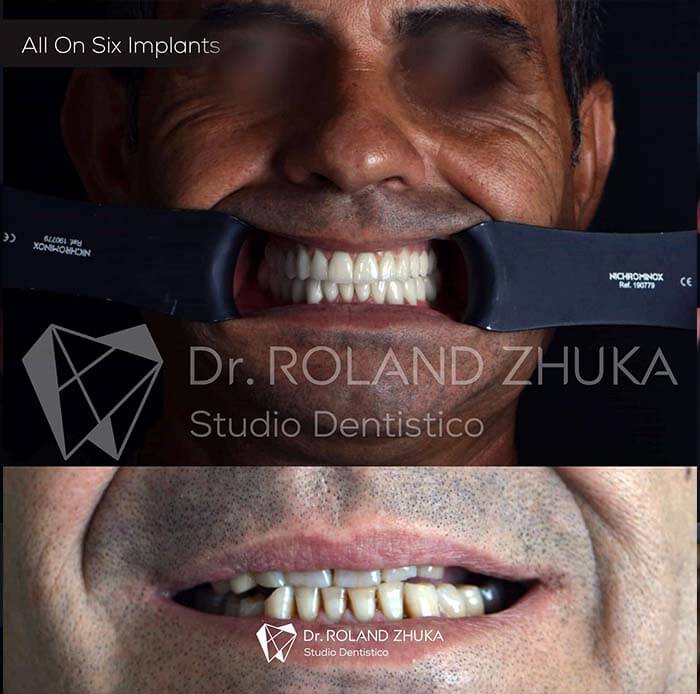
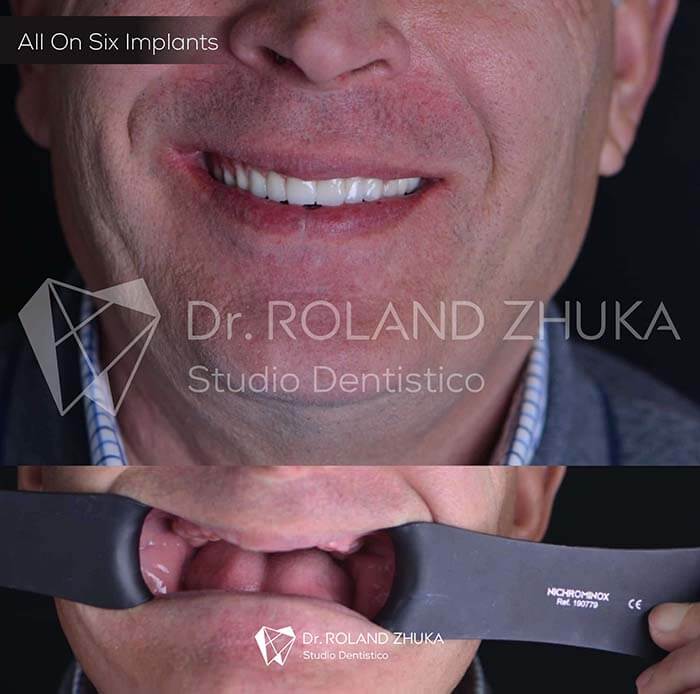
Patients have different ideas when it comes to dentistry, some of them love the innovations, while others love the unchanged classics. The same works for dental crowns, some people prefer metal-ceramic dental crowns.
Our clinic is here to give you the opportunity for these new dentistry innovations, as well as the classics- We have years of experience and training in dental crowns.
Located in Tirana, Albania, we give you the chance to choose from several options when it comes to dental crowns, following the severity of your teeth’s conditions and your economic limits.
The following are several types of metal from which crowns are made:
In nowadays dentistry, for the production of metal-ceramic crowns, a chromium-cobalt mixture is the most commonly used, due to its relatively affordable price and its good functionality. Formerly, gold was used to create crowns for teeth, because it had both high strength and aesthetics. Then it started getting mixed with platinum, and after a while, the fancy metals were dropped due to their high prices. Consequently, chromium-cobalt crowns became the most optimal option. They do not have high aesthetics but they are truly durable.
The price and quality ratio is entirely justified when it comes to metal-ceramic crowns. Therefore when using prosthetics, most patients and dentists prefer them.
Metal-ceramic crowns are used to install bridges. If in need of a dental bridge, the option here is only cermets, which will not bend or break during a heavy load.
The following is a list of the advantages of metal-ceramic crowns:
Metal crowns have normally a daily large volume since there must be many layers of ceramic to cover the blue-ish tint. Additionally, the thickness of the cap can reach from 1.5 to 2 mm, which pimples a strong turning of the tooth, which means high trauma.
The list below presents you with some of the cons of metal-ceramic crowns:
Contraindications for the metal-ceramic crowns include patients with untreated periodontal diseases, as per all fixed restorations. The disease should be treated before any action is taken. They are all an absolute no in your patients with large pulp chambers. And lastly, they are contraindicated when more conservative retainers are technically feasible.
The whole process of creating a dental crown from metal-ceramic consists of three steps:
There are several stages to the procedure of inserting a crown into a tooth. However, in general, the procedure takes from two to three weeks if dental treatment is not needed. Logically, the more crowns you need to get done, the more time it will take.
In simpler words the process involves the below stages:
To compare the two, several factors are put on the scales: cost, quality, service life, guarantee, biocompatibility, repairment possibility, and much more. The patients always put those on a scale when wanting to choose something affordable, yet high quality.
When it comes to ceramic crowns: yes, they have a few advantages, like the lack of blue-ness compared to metal-ceramic crowns. They also have high aesthetics, the metal-ceramic crown’s lack of, as well as, the biocompatibility in their cases is higher and the presence of allergic reactions is lower. However, their high prices are what withdraws patients from choosing them.
Most people that undergo the procedure of dental crowns are people that do not have any other issue other than for their teeth to be natural-looking and aesthetically pleasing. Whoever has a broken, cracked, or chipped too but still has the tooth root intact can use a dental crown. In case somebody has tooth decay or any periodontal disease, they would have to treat it before getting dental crowns done. Some of the conditions that make you the right candidate for dental crowns are mentioned below:
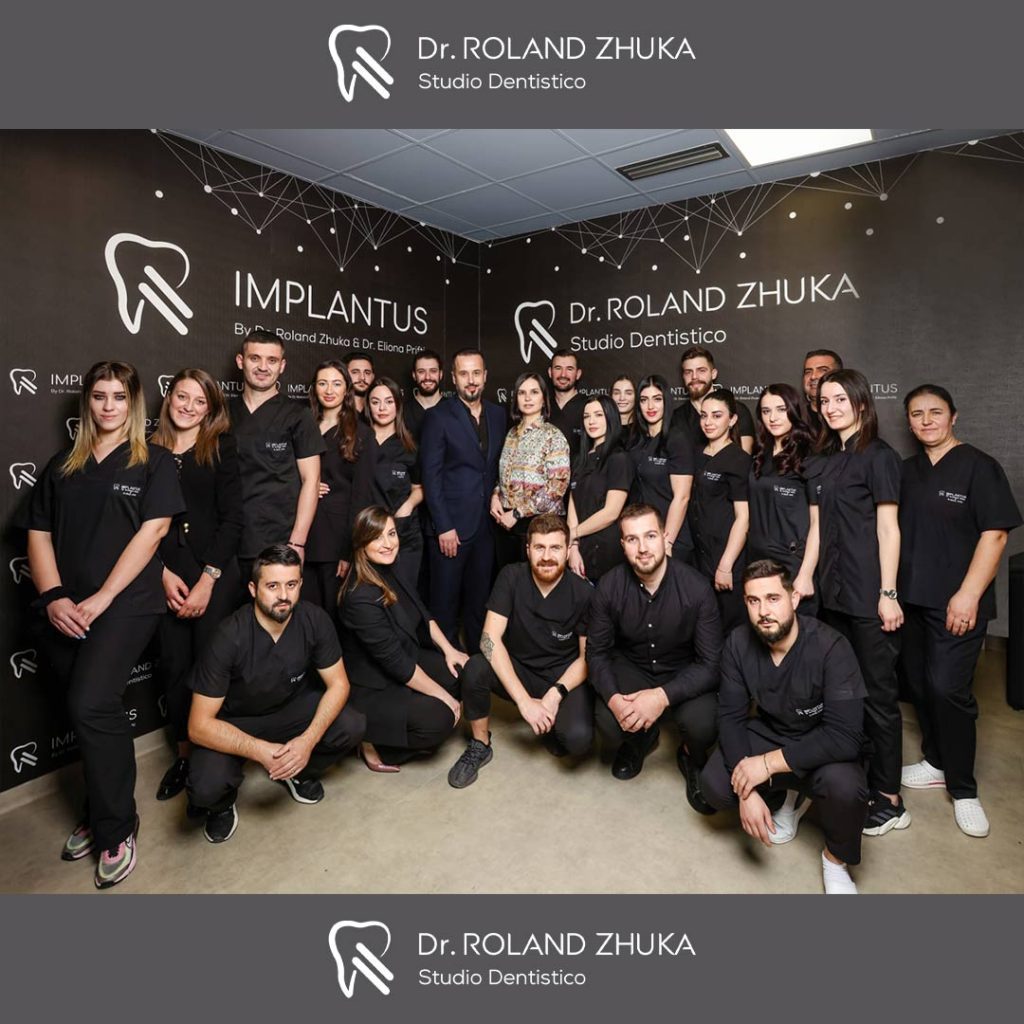
Dental crowns, in general, have a long endurance, but that of course depends on certain factors: Mainly good oral hygiene is a must, but avoiding any kind of unhealthy food, that put any sort of pressure on the crowns, is a plus.
Not quite. The procedure itself does not include any serious oral surgery, which subsequently means that it is not hurtful as you might think. Before placing your crown, your dentist will remove any damaged enamel. Next, the enamel will be trimmed and shaped into a stable, where the new crown will take place. Research has shown that patients do not find the procedure painful.
The metal-ceramic restoration is one of the most commonly used indirect restorative systems, with about 40 years of use and a high success rate. Nevertheless, porcelain remains the top material of choice for the aesthetic veneering of teeth, metal, or high-strength ceramic.
The procedure itself takes only two to four hours. After scheduling an appointment and having it, the dentist takes about one to two hours to prepare the crown. Once the crown is built, it is cemented into place.
+355 69 704 4409
info@dr-rolandzhuka.com
Complete the form below to get a free quote. Our experts will get back to you as soon as possible.

Get a free quote right on your Email from our specialist.
*by clicking “send” you agree that you will be receiving emails from us.